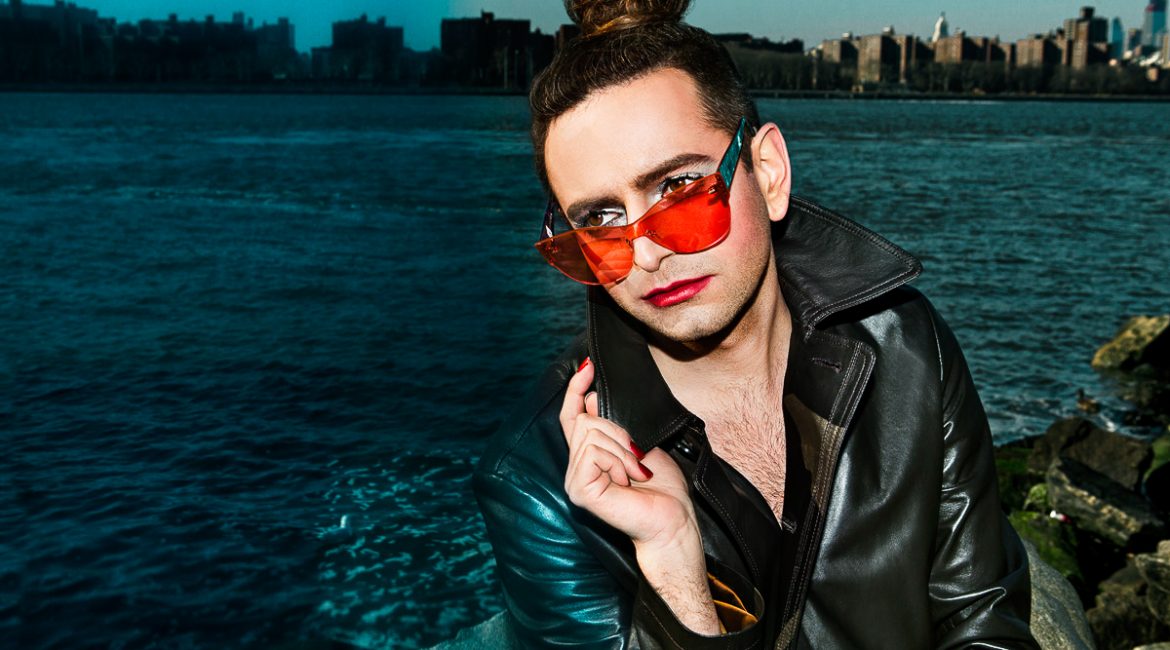For so many genderqueer folk, it is hard to find people in the spotlight that really seem to inspire us without inducing intense FOMO (Fear of Missing Out) or Dysphoria (the clinically recognized sensation of not feeling comfortable inhabiting one’s body). While we have seen an influx of Transgender and Genderqueer celebrities over the past few years, the majority tend to fall into a stereotypical understanding of gender, beauty, or androgyny. While Jacob Tobia is one face we may all recognize from their dozens of appearances in those optimistic, queer clickbait videos, there is a lot more to this genderqueer cheerleader than is presented in mainstream media. Besides being an MSNBC Correspondent, a social media wiz, and a rising entertainer, Jacob is currently writing a memoir titled Sissy that will come out next year. Jacob and I had the pleasure of discussing their stormier side, queer history, and their journey to becoming a “cool girl.”
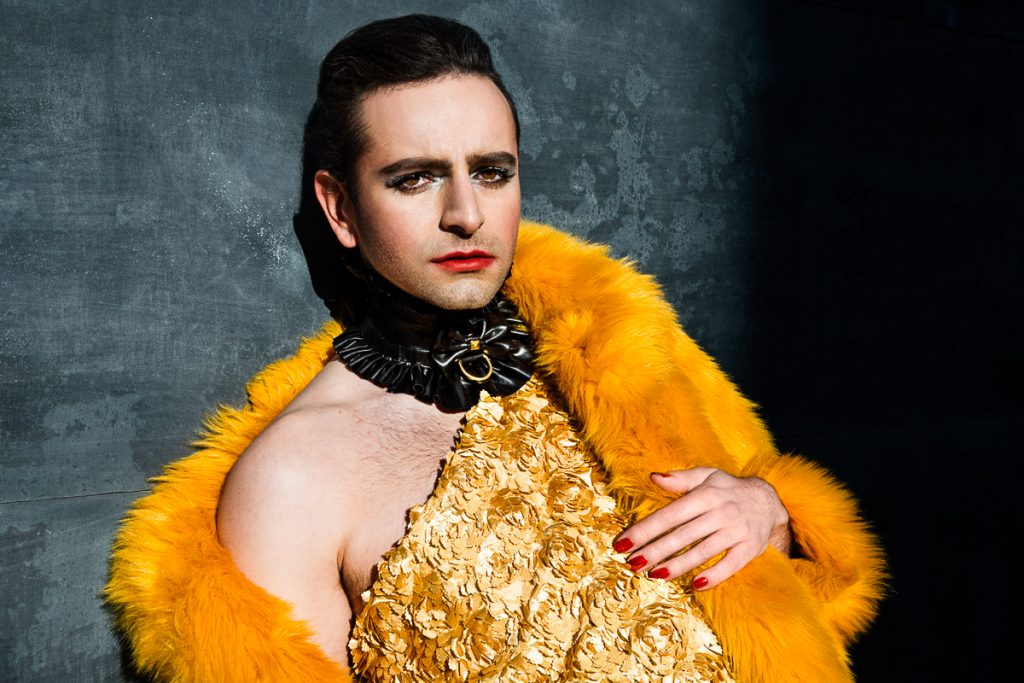
Do you mind me asking what your sign is?
I’m a Leo, and I’m such a fucking Leo. If you just give me a little pat on my mane, I’ll do anything for you. Digital culture is a big challenge for me as a Leo, because I have trouble celebrating with people. I feel like my Leo instincts kick in every time I see someone else do something cool, and I have FOMO. I’m like a giant vat of attentional-need.
That raises my second question. Who is Jacob in private?
Well in private, I think that I’m definitely a little less optimistic, and a little more brooding sometimes. I don’t feel established or settled in the industry the way I want to be. I’m also trying to figure out how to really let myself have permission to inhabit a GNC aesthetic that isn’t just high femme all the time.
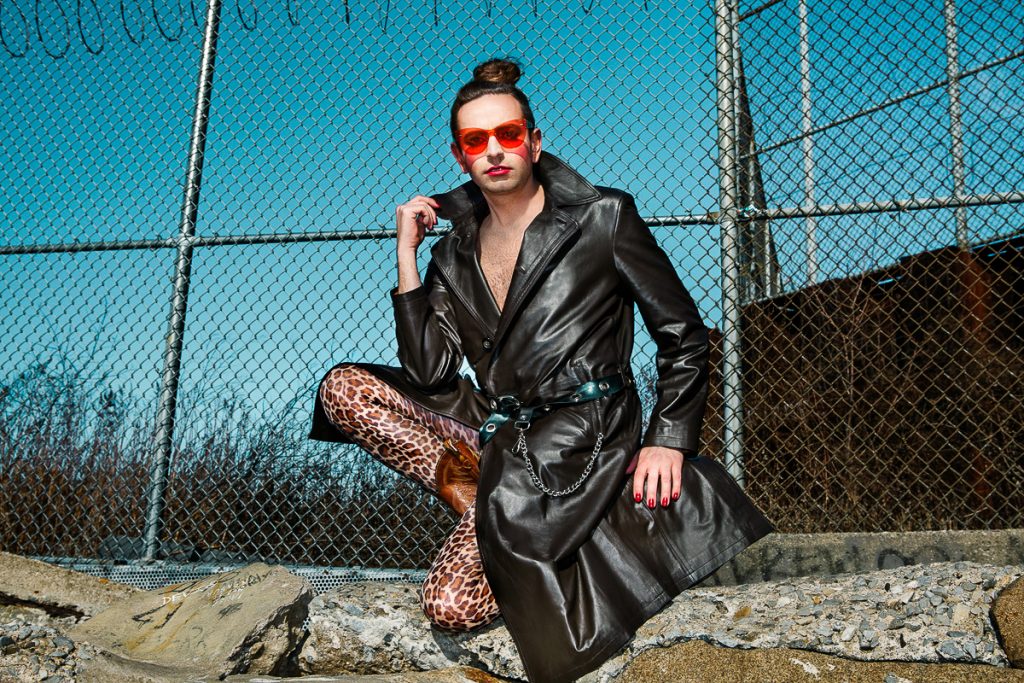
You’ve come a long way in terms of visibility as an activist. What does being an “influencer” mean to you?
For me, I feel like being an influencer is a real responsibility. I take the fact that people follow my work, and care about my work very seriously. And it’s also about resisting temptation to make [my content] more palatable and shareable all the time.
Do you feel a level of responsibility to represent Nonbinary Trans people?
No, not at all. That’s been the biggest freedom for me — when I realized that the more you try to represent the “nonbinary community,” the more you try to espouse that your experience is anything but individual. I’m not single-handedly bringing some community out from the dark. If anything, I’m the beneficiary of generations of activism, and generations of people who have lived very courageous lives and did not receive much in return. I don’t think there is a face of gender nonconformity because gender nonconformity is everywhere across all cultures and all people throughout history.
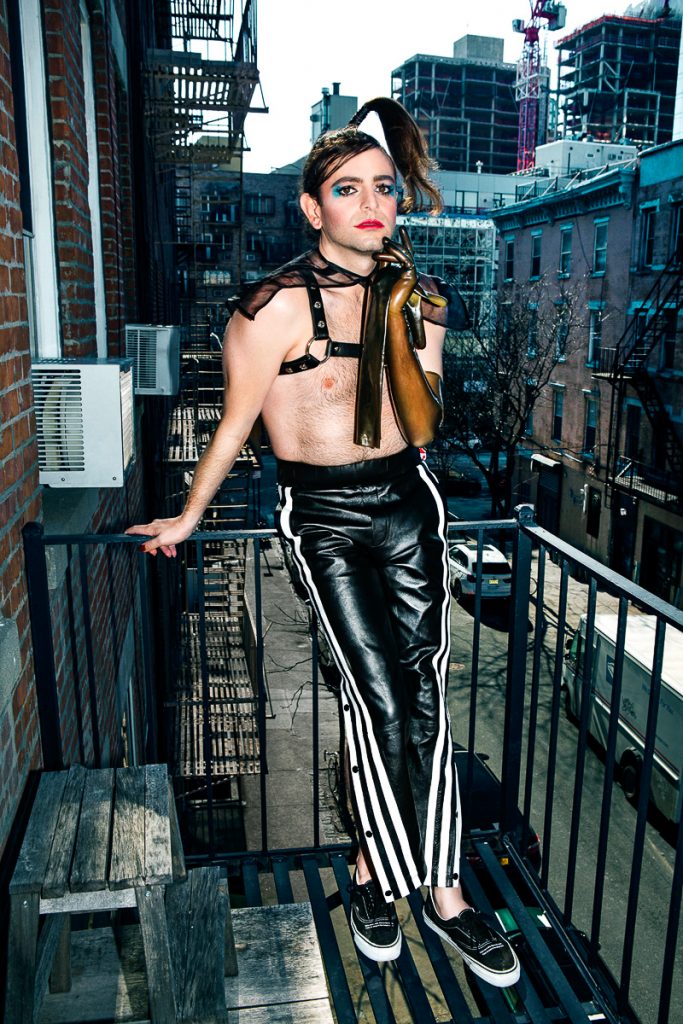
It’s obvious that you spend a lot of time really understanding social impact. I’m curious how you understand your own privileges, or lack thereof?
I will forever find new ways to be surprised about what white privilege means in this world, in terms of people being willing to generalize my experience. I think one is always on a journey of understanding what that really means, and the full impact of that. And also, I have a fancy ass diploma. I worked my ass off for it, mind you, but I was compensating really. I was that queer overachiever and it was a way for me to avoid thinking about who I really was.
There’s a degree to which my educational privilege certainly helps me feel a sense of security, or a sense of fallback, as I’m pursuing the entertainment industry. However, I don’t get some of the perks that some of my friends get in terms of industry sanctioned fuckability. Even in terms of talking about a lot of my privileges, I’m nonbinary in a lot of those capacities. I’m kind of pretty, but I’m not quite pretty enough to land a fat, mainstream fashion campaign. I’m pretty enough to land a queer beauty campaign, but you know. I’m white passing, but I’m also an Arab American. So it’s complicated. I have a lot of weird intersections that make it really hard to be categorically privileged or unprivileged.
On that note, I’d like to shift into a space of suggestions. How do you think people can be better consumers of media?
Do not equate visibility with power. Many visible people have very little power. And more often, invisible people have tons of power. Not invisible like people from a minority group, but I’m talking about the people who are pulling the strings and are generally very invisible. And their invisibility is part of why they’re able to pull the strings for so long and get away with it. Most Americans didn’t even know who Harvey Weinstein, even though he controlled the entire business. I wish people would have a deeper sense of context when consuming queer media because the hype is dangerous. It’s way easier to talk about the nonbinary community as a new trend. But it’s not new. This has literally been around forever in every culture in human history.
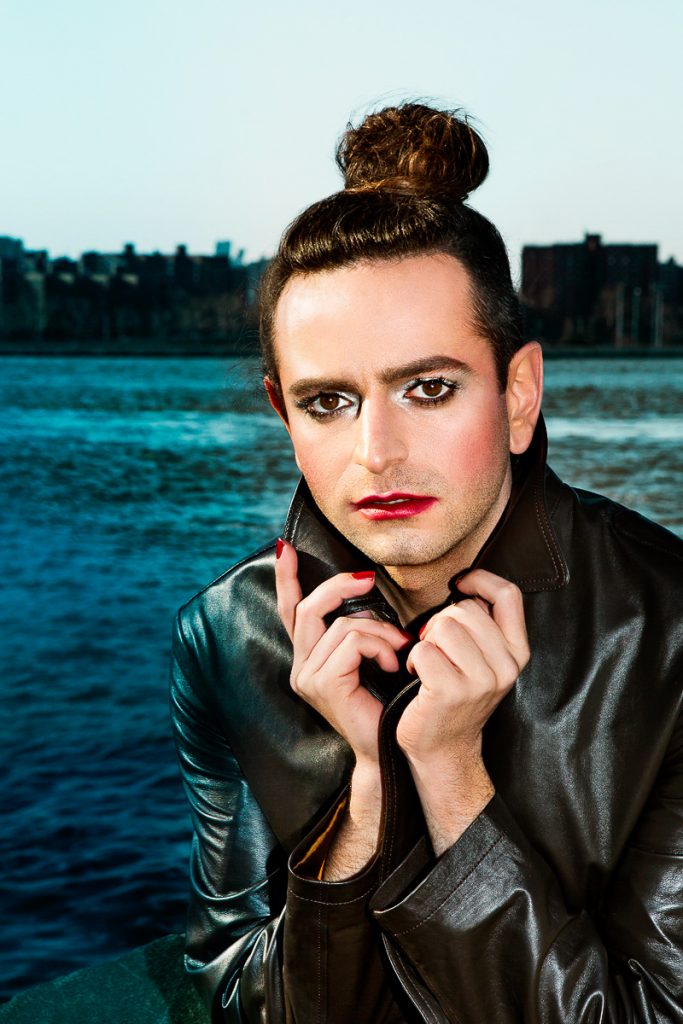
I feel like I could explain that to my parents, more so than I could explain queer bar culture. When we get back to talking about history, we have a base of conversation.
History is power. When I recognize that I’m following a tradition of queens and nobility, the most brilliant artists, the most incredible spiritual guides, all of the highest priests, all of the shamans, and everybody who has ever cut a deeper spiritual residence with a higher plane — then I’m coming at it from a place of so much greater power.
Yes! Talk to me about your upcoming memoir Sissy, that will publish with Putnam Books at Penguin Random House next year.
I don’t want my book to be thought of as “the” genderqueer book. That closes the door. My book is a Trans and Queer and Genderqueer book. You have to buy all the others, publishers and consumers, in order to have the full story. You’re not just going to have the full story from me, and you never will.
People don’t always know this when it’s a memoir, but you actually sell the book before you write it. You write a proposal, which is really more of a marketing document more than anything else. At first I felt this implied sexist threat of, “why would anyone care about you, you queen? Why would anybody care about a little fag like you? Well, no one’s going to care about a little sissy like you.” But if you make a joke of their premise, then you kind of win, right? So I just made a joke about the whole thing. And I was like, the people who are going to care about me are obscure, queer teenagers on Tumblr and a few low-key republican chardonnay and pinot grigio-drinking moms who will somehow find a way to this book and maybe will see the error of their ways. And definitely people who shop at Whole Foods, because they’re used to over-paying for things that other people tell them are good for them. So, that’s pretty much my audience. And I just cracked as many jokes as I could. And it was so fun. So now, I have this 100,000 word rough draft that is the full draft of the book, but needs to be smoothed out.
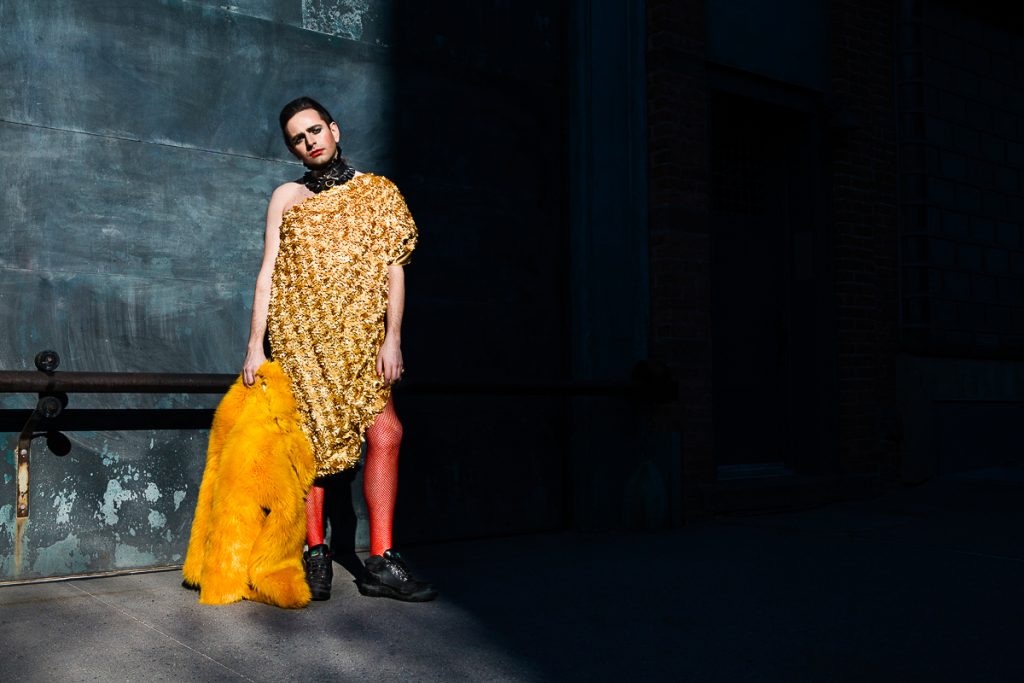
Beyond your memoir, what are your hopes for the future?
I studied history in school. I’m very historical in my thinking. You always have to contextualize your contributions and your accomplishments. That’s the thing that is most annoying to me, about queer media, and about Queer STANing and fandom. I also feel like there’s a degree to which, whenever a queer person is the first to do anything, or is the darling of the moment, they’re always celebrated a-historically. And it’s like no, you’re resting on the backs of so many people. That’s how history works. That’s how movements work, that’s how communities work.
And so, I never want to be like, “Hi. I accomplished this thing, because I am brave.” There are moments when I am brave, but also, there have been activists, women, and queer people of color, and so many different movements that have come before me, and made it so I am able to not always be courageous.
And that’s what I want to pass on to the next generation. I want a world in which it doesn’t take courage to be gender nonconforming. I want a world in which it’s effortless and easy, and you don’t even have to have anxiety about it. Where you can just have clinical anxiety instead of clinical anxiety and situational and gender anxiety.
Follow Jacob Tobia on Instagram: @jacobtobia
Editorial Credits:
Producer: Winter Mendelson
Author: Cyber Bruja
Photographer: Andi Elloway
Creative Director: Morgan T Stuart
Senior Photo Director: Asher Torres
Stylist: Gia Seo
Hair: Matthew Green
Makeup: Katie Robinson
Become a Posture Member
Join the Posture community and become an official member! Membership includes our special annual print edition ($20 value), free and/or discounted entry to all Posture events in NYC (including upcoming mixers, panel discussions, and networking opportunities), special offers from our partners, personal updates from the Posture team, and more. Learn more here.

